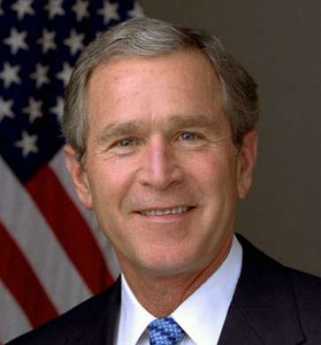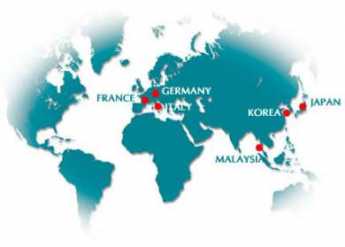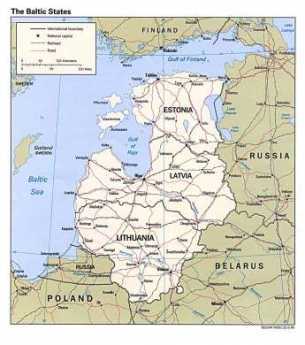Related Topics
Foreign Affairs
This topic is under construction. Feel free to watch it evolve.
CEO of the World

|
| George W Bush |
Christmas, 2005.
My Quaker Friends are comfortable with the firm position that no war can be justified. This sometimes leads to feeling it's unnecessary even to consider the justifications or the mitigating circumstances of any war, since nothing can be said which will lessen their opposition. My Democrat friends seem to have an equally closed mind, one which leads them to emotional denunciations of George Bush which I know cannot be completely reasonable. However, George Bush and I went to the same sort of schools, feel passionate about the same sort of libertarian economics. I like his father very much, even though our association in the same college class was very brief. In short, I want to give this man every benefit of doubt and fairness, even in the face of what I must acknowledge to Quakers and Democrats is a glum recognition of the strength of their strongest argument. I don't like wars, I don't like political spin. But it is important to me to feel I am doing my own thinking, so I resolved to make as good a case for Was I possibly could. After that, perhaps I could take time to see how well I had convinced myself.

|
We frequently hear that America is the only superpower in the world; our president is the most powerful man alive. I suspect George Bush believes that, too. His formulation is likely to be that he has found himself the Chief Executive, the CEO, of the world. His training and background tell him how to manage a huge enterprise: delegate authority. That is, assign general goals to subordinates. Prior to 1918, an American president would assign foreign affairs to his State Department.
Our involvement in several cataclysmic wars made clear that large portions of the world would not leave us alone, nor respond to the persuasiveness of diplomats, either. Certain governments at certain times, would have to be assigned to the Department of Defense. This technique worked even better than we expected; Germany, Japan, and Italy became our most effective allies.

|
| Baltic States |
The rest of the non-American World was turned over to the multi-national corporations. More accurately, perhaps, the multinationals took the rest of the world away from the State Department and proceeded to subdue a great deal of it. South Korea, Taiwan, Malaysia, Singapore, Poland, the Baltic states, Hungary, India, the Czech Republic seemed to do it eagerly, China did it in its own way, and much of the rest did it grudgingly. Russia and mainland China, along with Canada and Mexico, are special cases. Perhaps an interdisciplinary approach needs to be devised for them.
<But by the time the younger Bush President came to power, it had become clear that none of our approaches, diplomatic, military or economic, would make much difference to a large subcivilized part of the world. Africa and vast stretches of Central Asia were just about the same as they were in 1900. Like South America, it looked as though they could be safely ignored -- until the events of September 11 showed that they could not be. Furthermore, it was clear to the American government that this disaffected region not only hated us, but had the capability of making atom bombs, and the oil revenues to finance a very destructive war against civilization. In Texas parlance, it's them or us.
The largely marginalized State Department quite properly responded to the enraged vigilante police action by protesting that you can't intimidate millions of people who essentially have nothing to lose. The diplomatic corps has long been a creature of a handful of universities who were once themselves captured by sit-ins and more recently by tenure.
Originally published: Thursday, June 22, 2006; most-recently modified: Wednesday, May 22, 2019